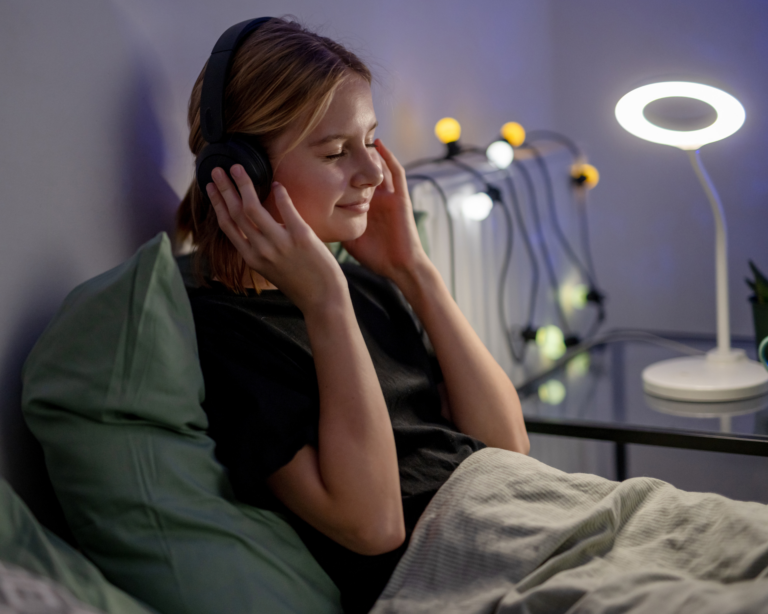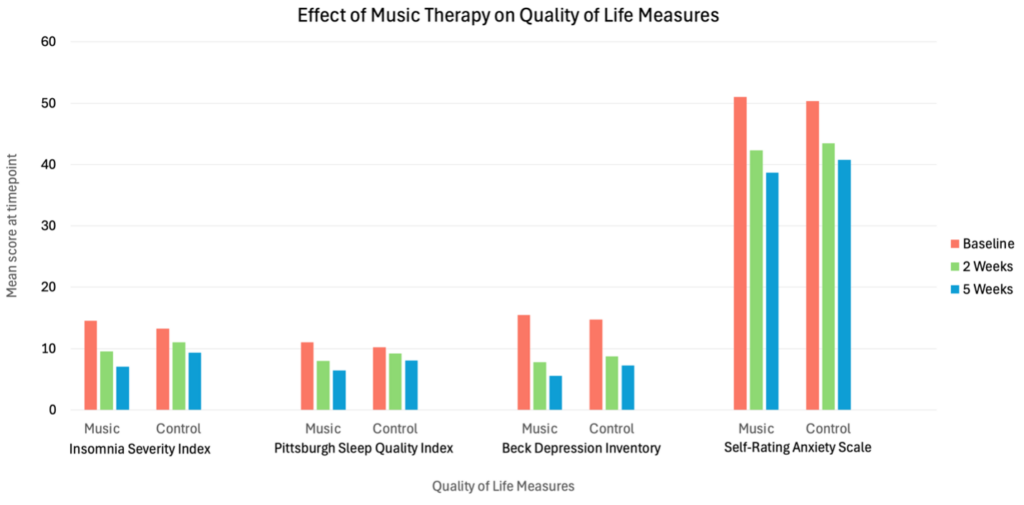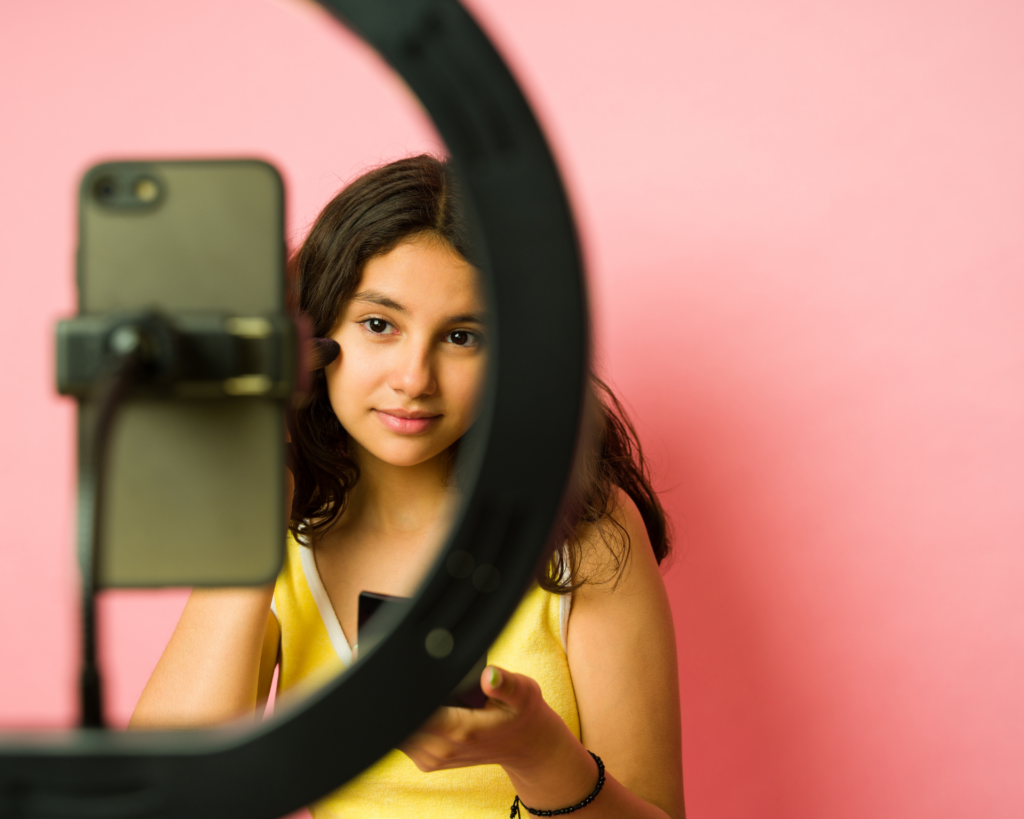Healing Harmonies: A New Bedtime Routine for Students
Music therapy is linked with improved sleep quality as well as a reduction in insomnia symptoms and reported feelings of anxiety.

Read Time: 2 minutes
Published:
According to Spotify wrapped, I listened to over 55,000 minutes of music last year. Aside from pure entertainment, there is growing evidence that streaming my favorite artists may also benefit my health. Elements of music, such as rhythm and harmony, have been shown to ease stress levels and regulate mood. In fact, music therapy can effectively manage symptoms of various conditions, including Alzheimer’s, obsessive-compulsive disorder, and even sleep disorders.
Insomnia, one of the most common sleep disorders, is characterized by difficulty falling or staying asleep, as well as poor sleep quality. Sleep disorders can decrease daytime functioning by inducing fatigue and mood disturbances, resulting in poorer physical and mental health. One in four Americans suffer from short-term insomnia. In a recent study among college students, the primary cause of insomnia was academic stress.
To explore how music might support better sleep, Danni Yan and colleagues studied the effect of music therapy among 75 college students with sleep disturbances. Over 5 weeks, participants were randomly assigned to one of three groups: classical music treatment, jazz music treatment, or a control group. All groups practiced relaxation techniques, while only treatment groups listened to their assigned music before bedtime.

Music therapy combined with relaxation techniques was linked to improved sleep quality and a greater reduction of insomnia symptoms and anxiety scores over 5 weeks, compared to relaxation therapy alone. Music therapy also reduced depressive and anxiety symptoms faster than relaxation therapy alone. Overall, the vast majority (95.8%) of participants reported enjoying music therapy, and 75% reported improved daytime functioning. Jazz and classical music were equally effective treatments for insomnia, indicating that diverse genres of music may offer therapeutic benefits.
As a student myself, it can feel overwhelming to “schedule” music into my hectic routine. But music therapy doesn’t require appointments or expensive technology—simply a pair of headphones and access to streaming platforms like Spotify and YouTube. Most notably, music therapy is a non-invasive approach; I can listen to my curated playlists on repeat with no side effects.
Facing the pressures of academia doesn’t always require complex or costly solutions. The first step towards better sleep and better health can be as simple as pressing play on your favorite playlist (or two) right before bedtime.



